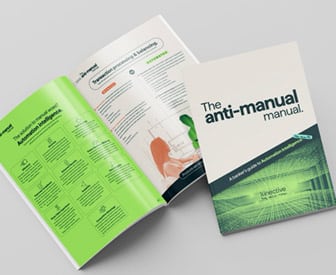Regulatory analysts are busy digging into newly proposed regulation on overdraft pricing from the Consumer Financial Protection Bureau. But there’s a sentiment out there that the details are almost beside the point; the proposal is really an attempt to simply kill overdraft service as consumers have come to know it.
Mike Moebs has been a guru on overdraft strategy and pricing for several decades; his clients include banks, credit unions and fintechs large and small.
“All of our clients will likely drop out of the overdraft business,” should the proposal go through as published, said Moebs, economist and CEO at Moebs Services. “That’s what Rohit Chopra really wants — elimination of the overdraft business.”
Moebs says Chopra has been gunning for overdrafts since President Biden named him the director of the CFPB.
The Biden administration’s formally declared war on “junk fees” came later, but overdraft charges and fees on credit cards, notably, already in the CFPB’s cross-hairs, were a natural fit.
“Our clients feel like the CFPB is squeezing every opportunity to eliminate fee income,” says Stephanie Lyon, vice president, compliance, at Ncontracts, a regulatory compliance technology firm.
“Banks call it a service — I call it exploitation,” President Biden said in a statement issued January 17, the day that the proposal was published. He added that the bureau’s proposal would save the average family $150 per year. The deadline for comments on the proposed regulation is April 1 and the bureau estimates that a final rule could be in place by October 2025.
As released, the proposal specifically applies to institutions over $10 billion in assets. That’s approximately 175 large depository institutions.
However, this limitation can be more illusory than real.

The New AI: A Banker’s Guide to Automation Intelligence
Manual tasks across channels is costly. And while AI is hot, there’s a simpler way to bring efficiency that many bankers have overlooked.
Read More about The New AI: A Banker’s Guide to Automation Intelligence

Industry Cloud for Banking from PwC
See how PwC's Industry Cloud for Banking can help solve everyday business challenges.
The bureau wrote the proposal as a revision to Regulation Z, which implements the Truth in Lending Act and subsequent amendments. Reg Z applies to all institutions, and while the current language of the overdraft proposal touches only the $10 billion and up group, the proposal says:
“The CFPB plans to monitor the market’s response to this rule before determining whether to alter the regulatory framework for financial institutions with assets less than or equal to $10 billion.”
“This is a threat to smaller institutions to make changes to their overdraft programs now, in fear of this expanding,” says Lyon.
The Independent Community Bankers of America welcomed the exemption in initial comments, but will be studying the details. The American Bankers Association, representing a broader swath of the industry, said that “In an effort to score political points, the CFPB is seeking to eliminate a valuable service, and push consumers who need overdraft protection into the hands of less-regulated, more-costly alternatives.”
“The CFPB has deliberately exceeded its intended purpose at the expense of the hardworking Americans they claim to protect,” America’s Credit Unions said. (The group, which debuted with the New Year, represents the merger of the Credit Union National Association and the National Association of Federal Credit Unions.)
Reviewing the CFPB’s Overdraft Proposal
Over the last few years, many major banks particularly have been reworking their overdraft programs. Indeed, in May 2023 the bureau itself issued a detailed report indicating that the banking industry’s revenue from overdraft and nonsufficient funds charges had fallen by nearly 50% in 2022.
Much of the controversy and rhetoric over overdraft concerns the reasons for the use of the service. Some overdraft use is as a financial backstop, a form of temporary credit, while others see it more often as a protection against bad recordkeeping — inaccurate estimates of when automatic payments will be going through and so on.
“Less than 10% of people overdraw for monetary reasons. For over 90%, it’s an error that they’ve made.”
— Mike Moebs, Moebs Services
Moebs’ firm conducts frequent research on overdrafts, and elements of research by such groups as the Financial Health Network and some research by CFPB itself support it. But all agree that there are some consumers who rely on overdraft service as a form of credit, frequently tapped in emergencies or exigencies.
Overdraft fees have long been exempted from Reg Z. The CFPB proposal includes the background of this in detail. The exemption goes back to a decision by the Federal Reserve, which oversaw Reg Z policymaking until the Dodd-Frank Act created CFPB and turned over certain rules to the new agency’s jurisdiction.
Among the proposal’s provisions:
• Reg Z would cover overdraft programs unless they were “provided at or below costs and losses as a true courtesy to consumers.”
• CFPB envisions establishing benchmark fees that would range from $3 to $14 that institutions could rely on for purposes of the above. (Moebs says his research indicates that currently the average overdraft fee is $22.)
• Overdraft charges that don’t fall under the foregoing provisions would be subject to Regulation Z controls, required disclosures, and more. In effect, the lines would be treated more like credit cards.
Ncontracts’ Lyon thinks the CFPB wants to eliminate the fee-based overdraft concept utterly, and push programs into formal overdraft lines of credit attached to the checking accounts. This was a common approach used years ago, though more as a form of check-accessed credit than to cover “oops” moments. Such interest-bearing credit lines were evaluated like other forms of consumer credit, and not all consumers could — nor can — meet the criteria.
“We are moving back to an approach of the past,” says Lyon.
Read more: Overdraft Fees: Worth the Publicity Headaches and the Fines?

Does CFPB’s Proposal Affect Competitive Balance with Fintechs?
Many fintechs have marketed for consumer accounts with very low or, often, no fees for overdrafts. Some argue the proposal, if implemented, could put the larger banks on a level playing field with the fintechs.
But consultant Mike Moebs discounts this, based on his own consulting experience. Walmart’s MoneyCard, which was converted from a reloadable debit card to a full-fledged checking account a few years ago, features overdraft protections, including protection up to $200.
Moebs says this, and other fintech offerings in this regard, don’t expose the fintechs very much. He says fintechs don’t offer more extensive programs because they don’t want to stand the risk of higher overdraft amounts.
By contrast, he explains, Bank of America will let people overdraw by as much as $5,000, because the bank wants to grow new relationships, beginning with checking. In a recent earnings briefing with analysts, Brian Moynihan, CEO, 600,000 net new consumer checking accounts in 2023.
Moebs adds that fintechs are much more interested in obtaining debit card interchange income. As for the likes of Walmart, that, and the desire to reduce paying interchange fees for card acceptance,, is another motivator.
Read more: Are You Fighting Yesterday’s Checking Account War Instead of Today’s?

Improve Your Business Outcomes Through Data & Analytics
Gain centralized access to the credit bureaus and 20+ alternative data sources. Leverage advanced analytics to optimize marketing campaigns and loan decisions.
Read More about Improve Your Business Outcomes Through Data & Analytics

Creating A Community with CQRC’s Branch Redesign
Find out how SLD helped CQRC Bank to create the perfect harmony of financial services, local culture, and the human touch in their branch transformation.
Read More about Creating A Community with CQRC’s Branch Redesign
Outlook for Action on the CFPB Proposal
The proposal represents another sign that CFPB’s actions are increasingly political. Biden, in his statement, took a pot shot at the opposition: “Unfortunately, some Republicans in Congress continue to defend these exploitative fees.”
That suggests that the proposal could potentially drag long enough to either go live during a second Biden administration or during a Republican administration. In the latter case, it could die on the vine, just as some Trump-era banking rules did when President Biden and his bank regulatory team took over.
So just what a final rule will look like is anyone’s guess.
“This is a proposal,” says Lyon, formerly a senior regulatory compliance counsel for NAFCU. “CFPB proposals do change dramatically. And this is an election year.”
But should the proposal go through and availability of much overdraft availability be curtailed, Moebs thinks that will be a black eye for the bureau. “We all make errors with our accounts,” says Moebs.
Read more:







